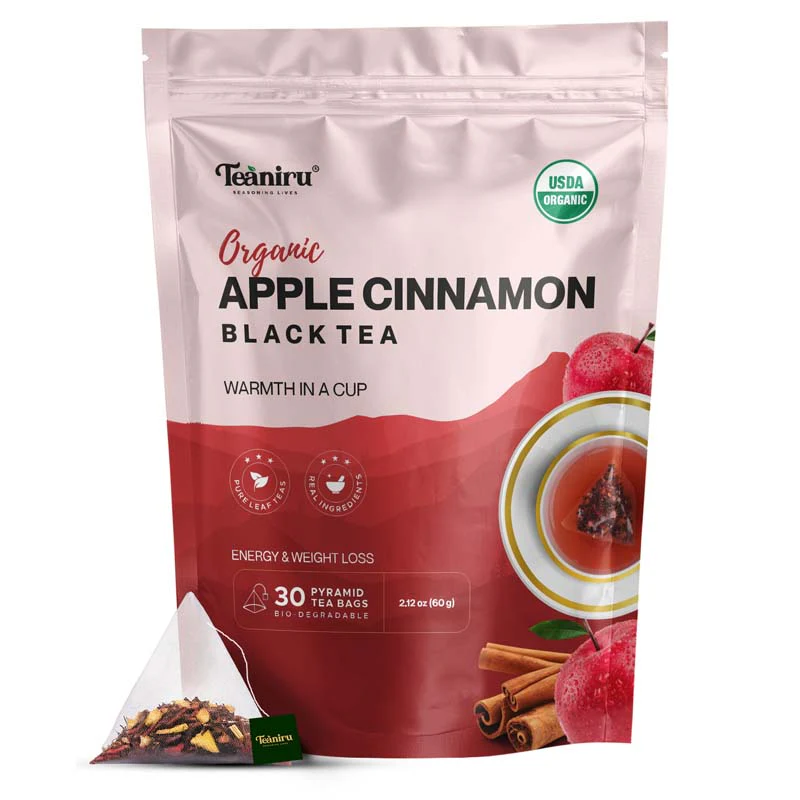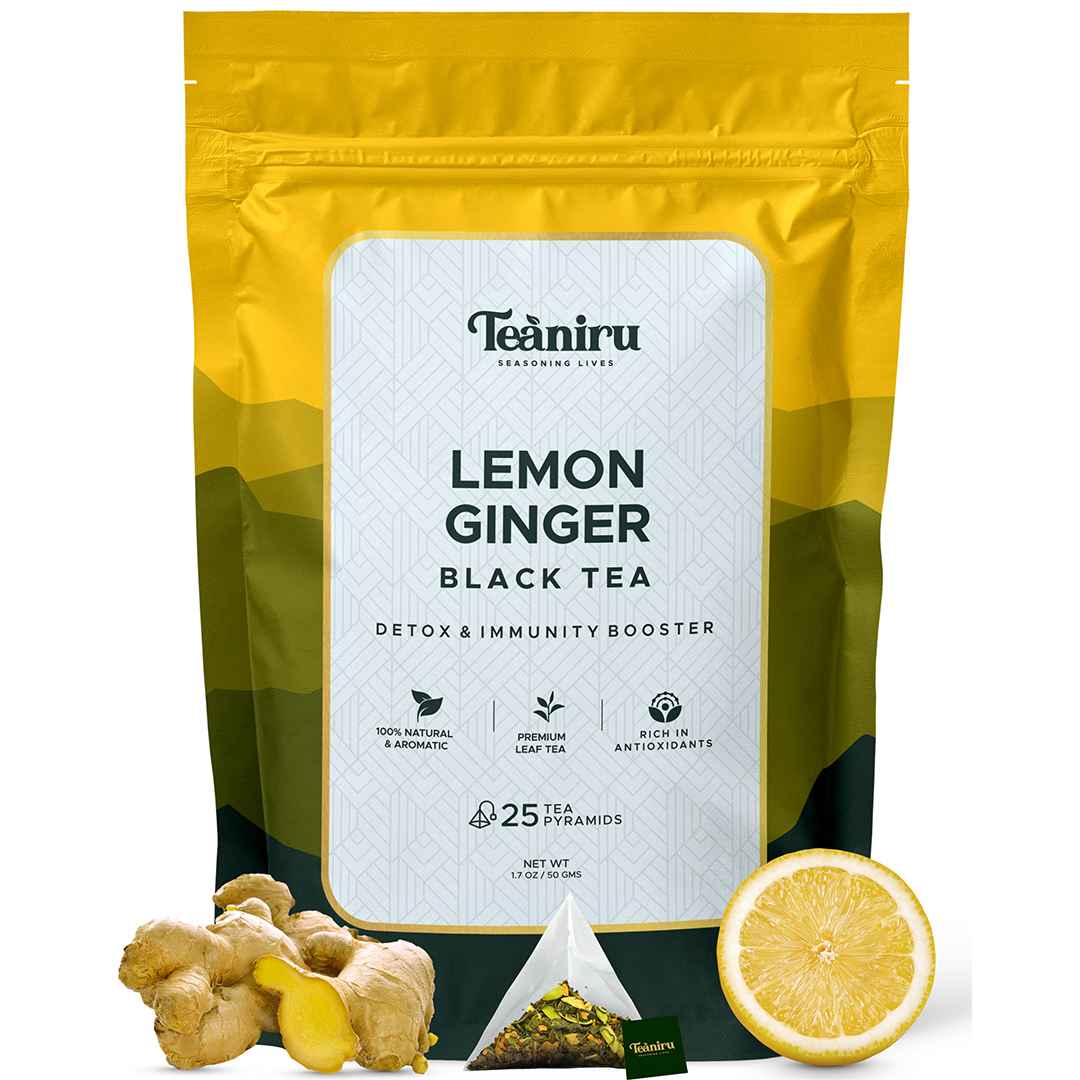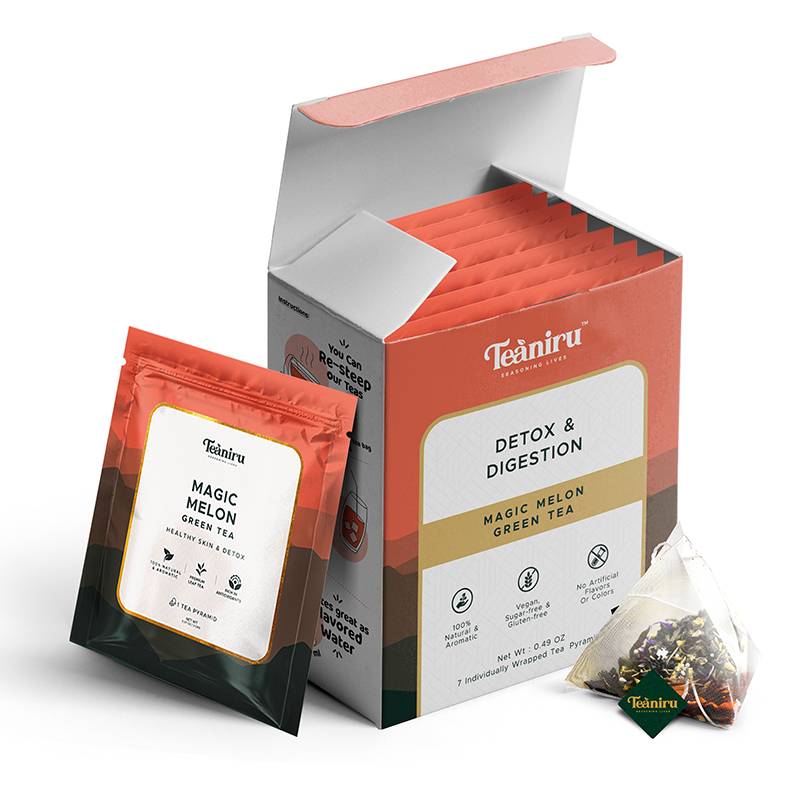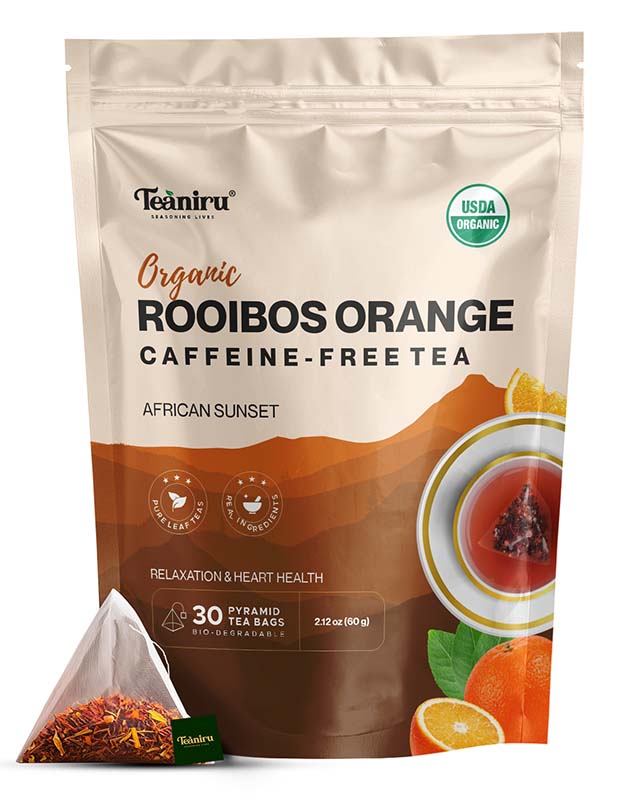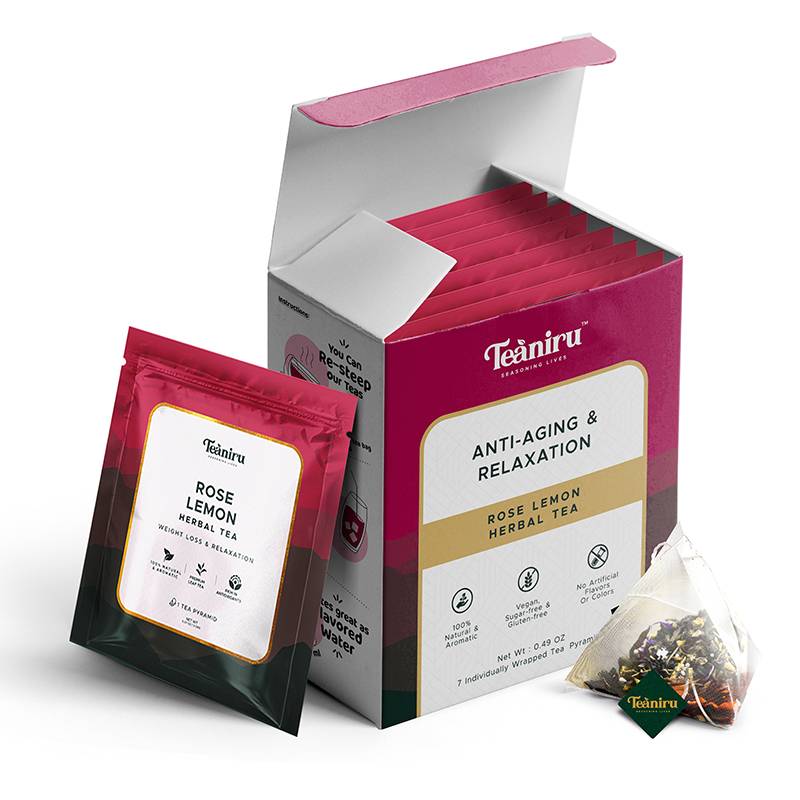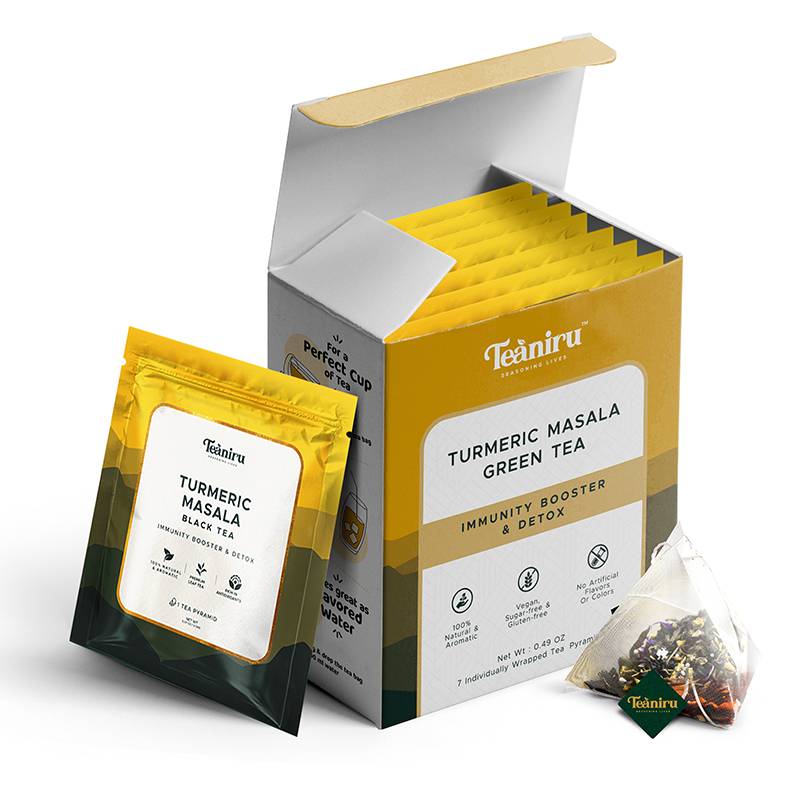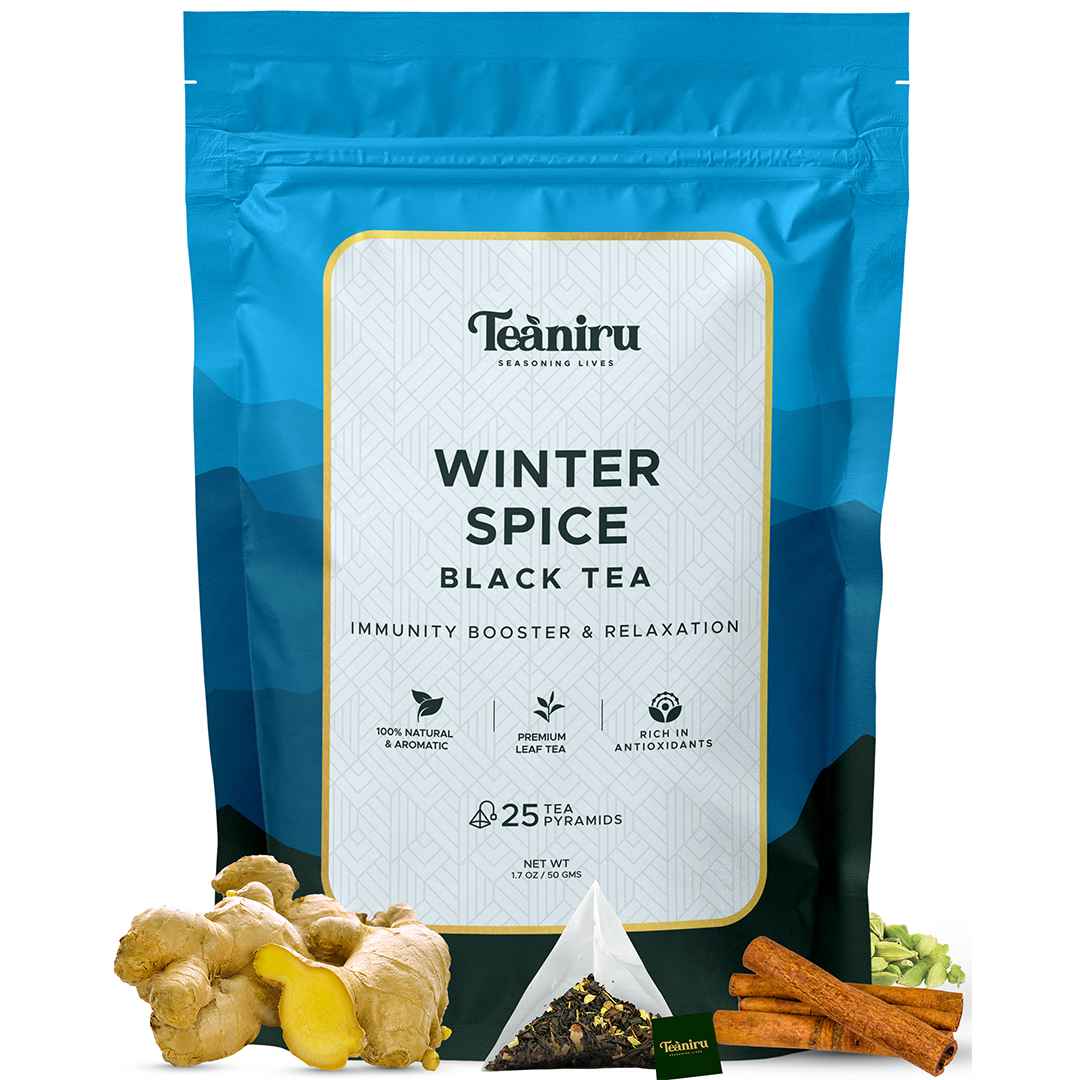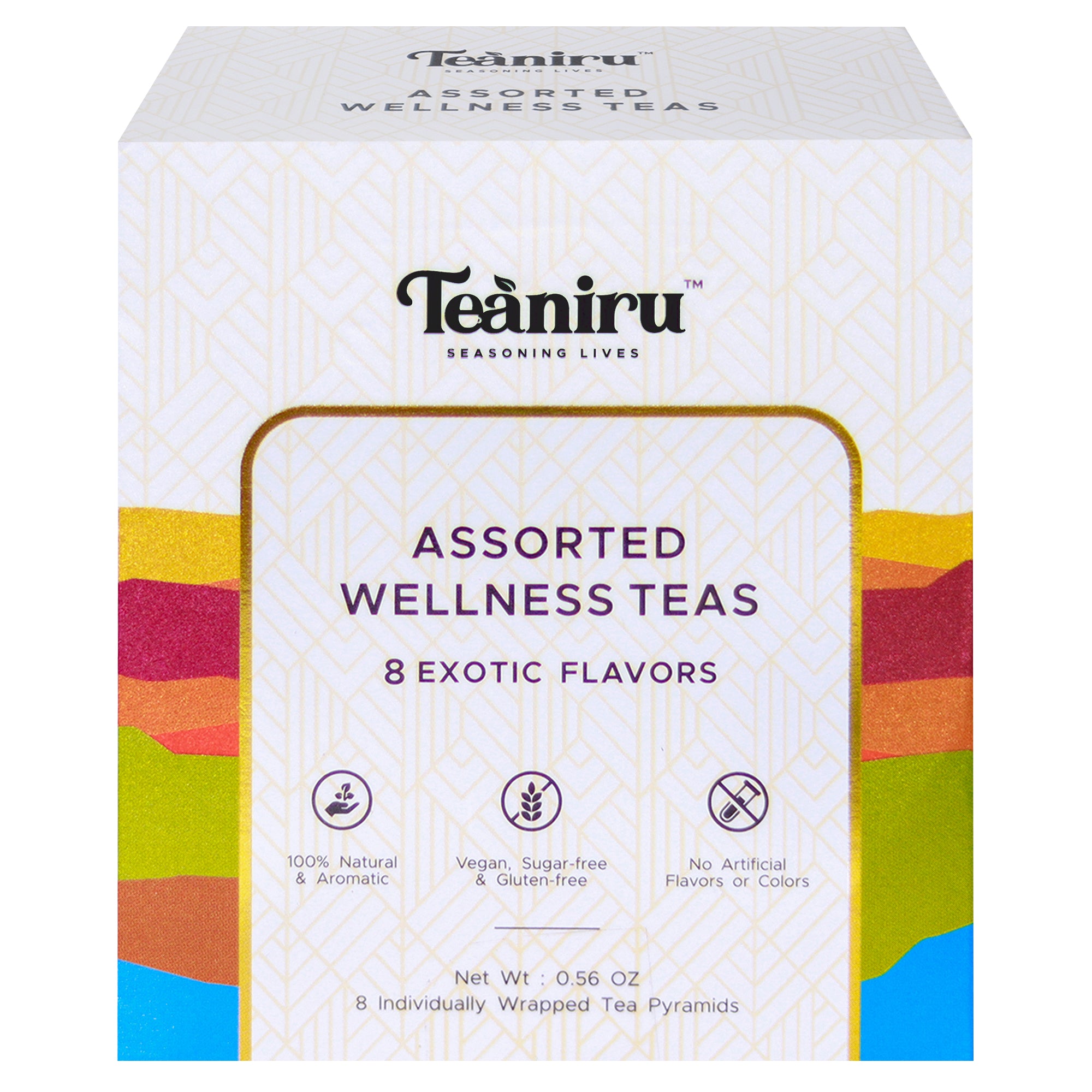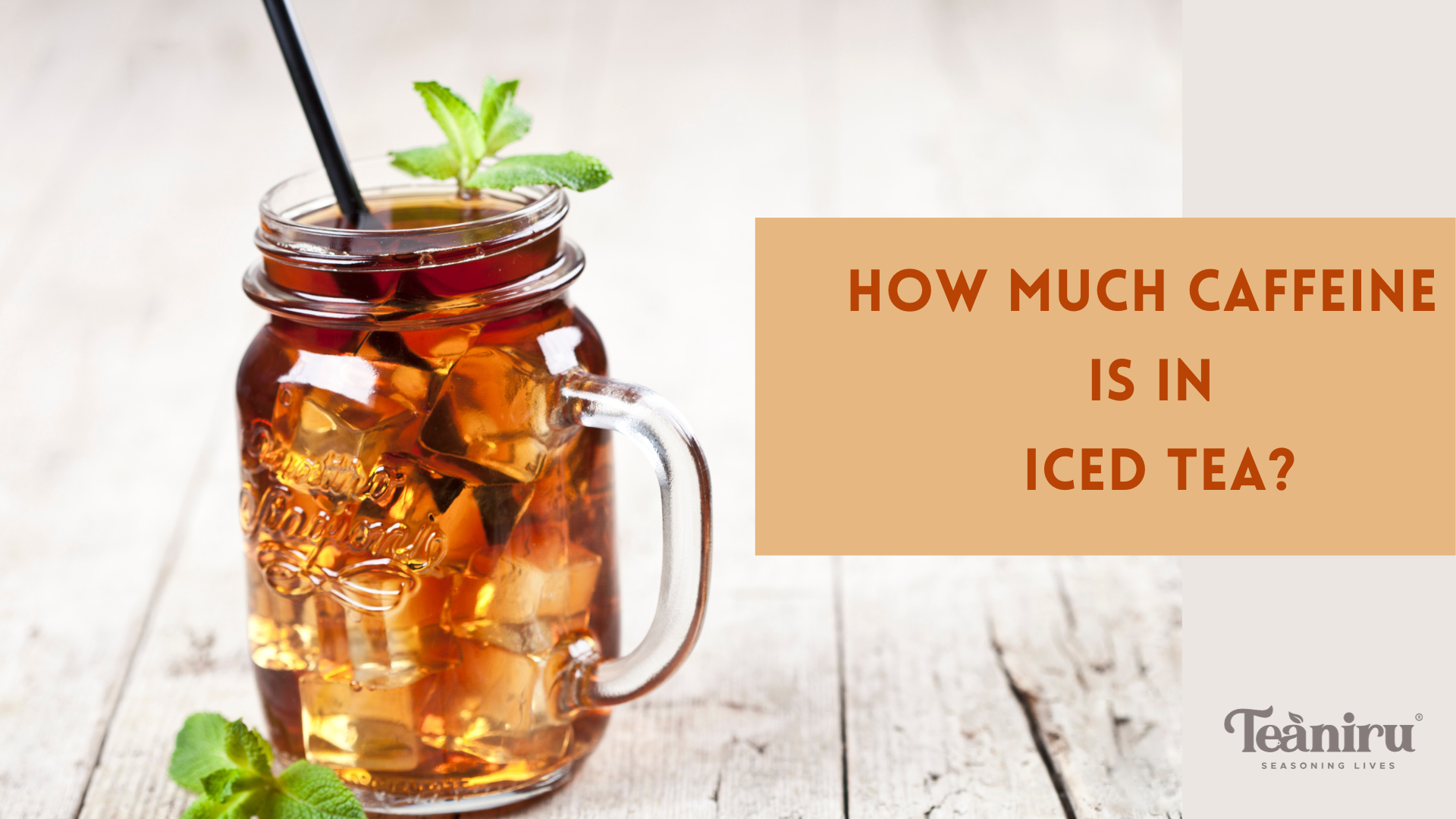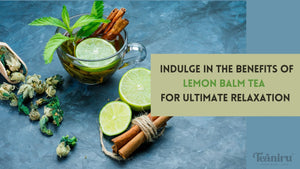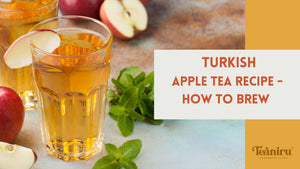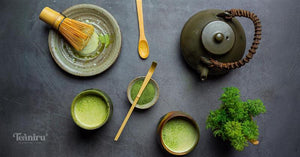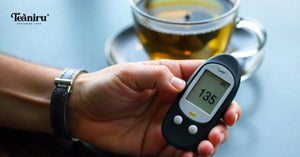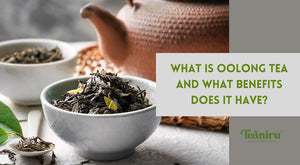You may also like
Iced tea is a popular and refreshing beverage enjoyed by people worldwide, especially during the hot summer months. However, a common question that often arises is whether iced tea contains caffeine. Caffeine is a natural stimulant found in many beverages, and its presence or absence in iced tea can significantly impact its appeal to different individuals.
In this discussion, we will explore the caffeine content in various types of iced tea, the factors that influence it, and how it compares to other beverages like coffee. Whether you're a tea enthusiast, health-conscious consumer, or simply curious about what's in your glass of iced tea, read on to discover the caffeine secrets behind this beloved beverage.
Does Iced Tea have Caffeine?
Iced tea can contain caffeine, but the caffeine content can vary depending on the type of tea used and how it's prepared. Typically, traditional iced tea made from black tea leaves will contain caffeine, but the exact amount can differ based on factors like the brand, brewing time, and the specific tea blend. To know the caffeine content of a particular iced tea, you should check the product label or inquire with the manufacturer.
Caffeine Levels in Different Types of Iced Teas Vs Plain Teas:
The caffeine levels in iced tea can vary widely based on the type of tea used. Here's a general idea of caffeine content in various types of iced teas vs plain teas. Almost the caffeine level is similar, the changes will occur only with the amount of tea leaves and brewing method.
|
Tea Type |
Plain Tea (Hot) Caffeine Content (per 8-ounce cup) |
Iced Tea (Caffeine Content per 8-ounce cup) |
|
Black Tea |
40-70 mg |
40-70 mg |
|
Green Tea |
20-45 mg |
20-45 mg |
|
White Tea |
15-30 mg |
15-30 mg |
|
Herbal Tea |
Caffeine-free |
Caffeine-free |
Does the Size of Ice Cubes Affect the Caffeine Concentration in Iced Tea?
The size of ice cubes you use in your iced tea shouldn't affect the caffeine concentration. Caffeine is a soluble compound in water, so it dissolves in the tea regardless of the ice cube size. The primary factor that determines caffeine content is the strength and type of tea used, as well as the brewing time.
Caffeine Content in Iced Tea Concentrates, Syrups, and Powdered/Instant Mixes:
- Iced Tea Concentrates or Syrups: These products tend to match the caffeine levels of the tea they're derived from. For precise details, consult the product label since caffeine amounts may differ among brands.
- Powdered or Instant Iced Tea Mixes: The caffeine content can fluctuate depending on the brand and formulation. Some utilize actual tea extract, while others employ synthetic flavors. To ascertain the exact caffeine content, refer to the product label or contact the manufacturer.
Caffeine in Specialty Iced Tea Blends (e.g., Fruit-Infused, Herbal-Infused)
Specialty iced tea blends, such as fruit-infused or herbal-infused iced teas, can have varying caffeine content. Fruit-infused teas often have little to no caffeine because they're primarily made from fruit and herbs. However, herbal infusions like chamomile or peppermint are caffeine-free.
Does Herbal Iced Tea Contain Caffeine?
No, herbal iced tea is typically caffeine-free. Herbal teas are made from a variety of plants, flowers, and herbs, and they do not contain tea leaves from the Camellia sinensis plant, which is responsible for caffeine in traditional teas like black, green, and white tea. Therefore, you can enjoy herbal iced tea without worrying about caffeine content.
How Does Decaffeinated Iced Tea Retain Its Flavor?
Decaffeinated iced tea is a good option for people who want to enjoy the flavor of tea without the stimulating effects of caffeine. Decaffeinated iced tea is made by removing most of the caffeine from tea leaves. There are two primary methods for decaffeination:
- Chemical Process
- Water Process
Decaffeinated iced tea retains its flavor through careful processing to minimize the loss of other compounds responsible for taste and aroma. While there may be a slight difference in taste compared to regular tea, many people find decaffeinated versions quite enjoyable.
Caffeine-Free Alternatives to Iced Tea
If you're looking for caffeine-free alternatives to traditional iced tea or if you want to reduce your caffeine intake, here are some options:
- Herbal Iced Tea: Herbal teas, such as chamomile, peppermint, hibiscus, and fruit-infused blends, are naturally caffeine-free and make delicious iced tea alternatives.
- Fruit-Infused Water: Create refreshing beverages by infusing water with slices of fruits like lemon, lime, orange, cucumber, or berries. It's a healthy and caffeine-free choice.
- Cold-Brewed Herbals: Cold-brewing herbs and spices like cinnamon, ginger, or lemongrass can result in flavorful caffeine-free iced beverages.
Does Bottled Iced Tea Have Caffeine?
Bottled iced tea can have varying caffeine content depending on the brand and type of tea used. Many commercially available bottled iced teas are made from black or green tea, which can contain caffeine. To determine whether a particular bottled iced tea has caffeine and how much, you should check the product label, as it will provide information on caffeine content per serving. Some bottled iced teas also come in decaffeinated versions for those who prefer to avoid caffeine.
Caffeine in Homemade Versus Store-Bought Iced Tea:
The caffeine content in homemade and store-bought iced tea can vary based on several factors, including the type of tea used, the brewing method, and the specific product or recipe. Here's a comparison:
|
Aspect |
Homemade Iced Tea |
Store Bought Iced Tea |
|---|---|---|
|
Control over ingredients |
You have control over the type of tea and can choose lower-caffeine or caffeine-free varieties, such as herbal or decaffeinated tea. |
Ingredients are predetermined by the brand; some offer decaffeinated or caffeine-free options. |
|
Customization |
You can adjust caffeine content to your preference by controlling steeping time and tea-to-water ratio. |
Limited ability to customize caffeine levels; choices depend on available products. |
|
Flavor Varieties |
Endless flavor possibilities by mixing different tea types, herbs, fruits, and sweeteners. |
Flavor options are determined by available brands and product lines. |
|
Freshness |
You can ensure freshness by brewing as needed. |
Prepackaged, shelf-stable products may not be as fresh as homemade. |
|
Taste |
Flavor may be more nuanced and reflect your personal preferences. |
Flavor is consistent but may not match your specific taste preferences. |
Ultimately, whether you prefer homemade or store-bought iced tea may depend on your taste preferences, desired caffeine content, and convenience.
How Does the Brewing Method Affect the Caffeine Levels in Iced Tea?
Yes, the steeping time can impact the caffeine content in homemade iced tea. Caffeine is
|
Steeping Time |
Caffeine Content |
Flavor Profile |
|
Short Steep ( 2- 3 minutes) |
Lower caffeine |
Milder tea flavor with less caffeine |
|
Long Steep (5-7 minutes) |
Higher caffeine |
Bolder taste with more caffeine |
extracted from tea leaves over time, so a longer steeping time will generally result in higher caffeine levels. Here's how it works:
The brewing method can significantly affect the caffeine levels in iced tea:
- Hot Brew: Traditional hot brewing methods extract more caffeine from tea leaves. If you make hot tea and then cool it down to make iced tea, it will likely have a higher caffeine content compared to cold-brewed iced tea.
- Cold Brew: Cold brewing involves steeping tea leaves in cold water for an extended period (usually several hours). This method results in a smoother and milder flavor with lower caffeine content than hot brewing. Cold brews are ideal for those looking to reduce caffeine intake.
- Decaffeinated Tea: Using decaffeinated tea leaves or blends is another way to lower caffeine levels regardless of the brewing method.
Caffeine Sensitivity and Iced Tea Consumption:
Caffeine sensitivity varies from person to person. Some individuals are more sensitive to caffeine and may experience side effects like jitteriness, increased heart rate, or difficulty sleeping when they consume caffeinated beverages, including iced tea. It's essential for those with caffeine sensitivity to be mindful of their caffeine intake and choose lower-caffeine or caffeine free tea options.
Iced Tea vs. All Beverages:
Comparing iced tea to all beverages is a broad topic, as the caffeine content and nutritional profile of beverages can vary widely. Here are some key points to consider:
|
Aspects |
Key points |
|
Caffeine Content |
Iced tea can have caffeine, depending on the type and brewing method. Less than coffee, but more than some non-tea beverages. |
|
Calories |
Unsweetened iced tea is typically low in calories, making it a healthier choice compared to sugary drinks like soda or fruit juice. |
|
Hydration |
Like water, iced tea contributes to hydration, but excessive caffeinated consumption may have a diuretic effect, leading to increased fluid loss. |
|
Nutritional Value |
Iced tea contains antioxidants and beneficial compounds from tea leaves, potentially offering health benefits. |
When comparing iced tea to other beverages, it's important to consider individual preferences, dietary restrictions, and health goals.
Iced Tea Caffeine Levels: Green Tea vs. Black Tea:
Green tea typically contains less caffeine than black tea. Therefore, iced green tea generally has lower caffeine levels compared to iced black tea. The exact caffeine content can vary based on factors like the type of tea leaves, brewing time, and concentration.
Caffeine in Sweetened vs. Unsweetened Iced Tea:
The caffeine content in iced tea is primarily determined by the type of tea used and the brewing method, not whether it's sweetened or unsweetened. Sweetened iced tea will have added sugars, which can increase its calorie content but do not affect caffeine levels.
Iced tea vs. hot tea:
The caffeine content in tea is not affected by whether it's served hot or cold. The primary factors that determine caffeine levels are the type of tea leaves used and the steeping time. Therefore, the caffeine content in iced tea made from the same tea leaves will be similar to that of hot tea made from the same leaves.
Iced Tea vs. Coffee Caffeine Comparison:
In general, coffee has a higher caffeine content compared to iced tea. A typical 8-ounce cup of coffee can contain anywhere from 95 to 165 milligrams of caffeine, whereas the caffeine content in iced tea, depending on the type and brewing method, usually ranges from 15 to 70 milligrams per 8-ounce cup. Therefore, coffee is generally a stronger source of caffeine than iced tea.
The Bottom Line:
Iced tea contains caffeine, but its content varies based on tea leaves, brewing method, and additional flavors. Some are naturally caffeine-free, while traditional black and green teas may have moderate levels. Understanding caffeine content is crucial for those sensitive to caffeine or seeking low-caffeine alternatives.
Iced tea offers refreshing, hydrating benefits due to antioxidants and compounds in leaves. The choice is yours, with a variety of flavors and options to suit your taste and dietary preferences.
